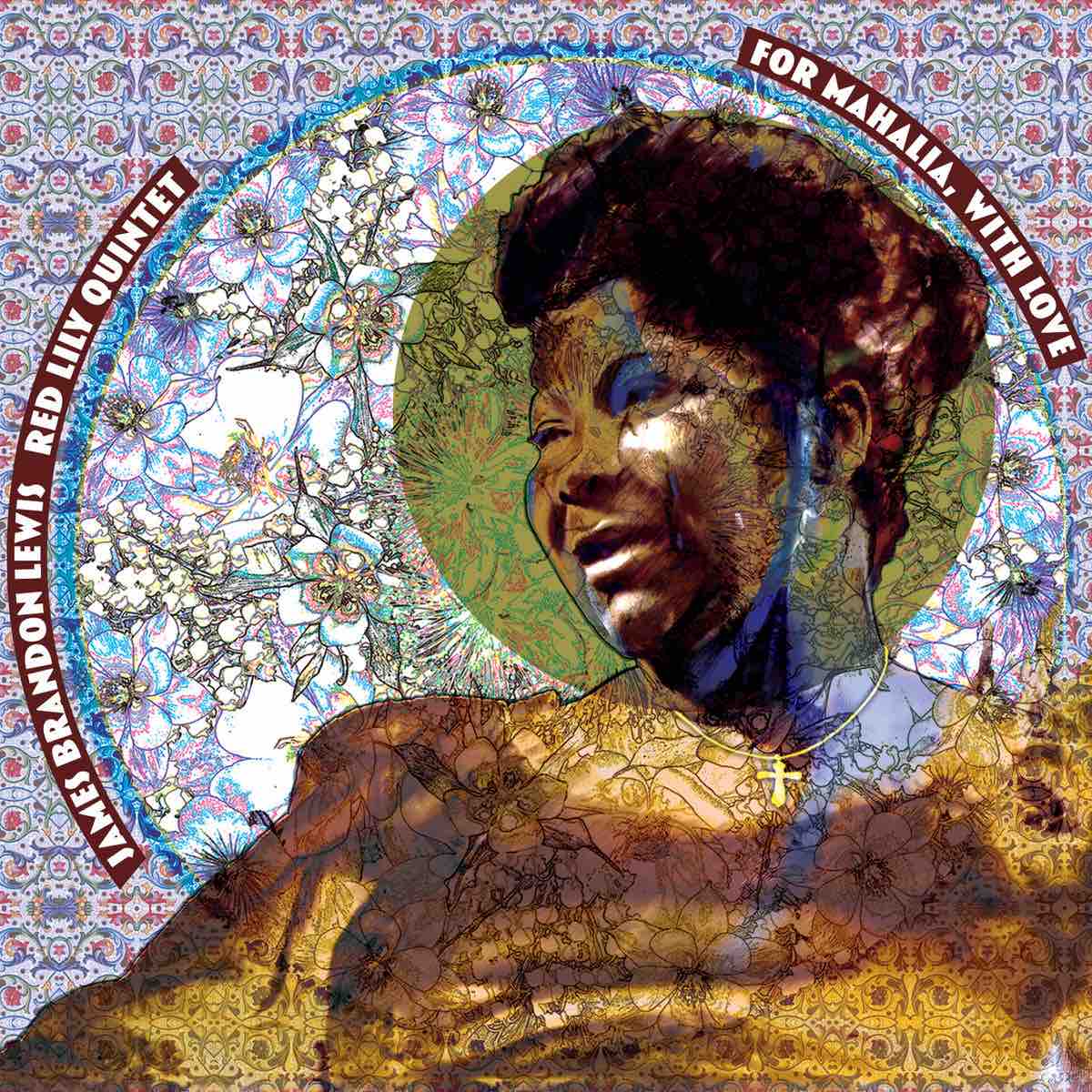James Brandon Lewis / Red Lily Quintet
For Mahalia, with Love
TAO FORMS
Composer and tough tenor saxophonist James Brandon Lewis has a way with tender yet tautly arranged and frank jazz tributes to iconic Black historical figures. While his recent leader album Jesup Wagon crafted adventurous noise and swirling atmospheres around the legend of inventor-entrepreneur George Washington Carver, Lewis sets his new album’s soaring sights on gospel legend Mahalia Jackson with a holy, avant-garde litany of spiritually enhanced songs as inspired by the vocal titan as it is the ghosts of Ornette Coleman and Charles Mingus.
Holding the keys on the Red Lily Quintet with William Parker (double bass), Chad Taylor (drums), Chris Hoffman (cello), and Kirk Knuffke (cornet) makes driving the vehicle that is For Mahalia, with Love a smooth ride even on the bumpiest roads, such as the angularly obtuse “Were You There” and the harmonically askew “Wade in the Water.” Starting off “Sparrow” in drone mode before moving into an Orleans’ parish parade on the same track, there’s rich celebration to be heard at every turn.
When the prayer seems to be grave and centering on loss (listen to the cornet on “Calvary”), there’s joy and hope to behold in every harmony line and rhythmic roll. When most roused in prayer and rhythmic dynamism on a track such as “Deep River,” Parker and Taylor act as provocateurs, urging Lewis and Hoffman into a sort of battle-rap playing style that portrays the fury of Biblical discourse. And on the closing faithful rendition of “Precious Lord,” these same players bring that fury-filled conversation to a bluesy chatter. For Mahalia isn’t just played with love—Lewis makes his free-gospel aesthetic one that’s filled with reverence, cheer, rage, and invention.







